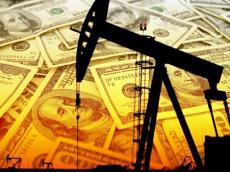|
|
TODAY.AZ / World news
Saudi Arabia adjusting to new reality of cheap oil
09 October 2015 [10:41] - TODAY.AZ

Saudi Arabia, the world largest oil exporter, is now adjusting to the new reality of cheap oil.
Recent reports surfacing that Saudi Arabia is to undertake a significant fiscal squeeze come as little surprise and support the view that, although the country’s economy has held up well this year, GDP growth looks set to slow in 2016-17, according to Jason Tuvey, Middle East Economist at British economic research and consulting company Capital Economics.
Saudi Arabia is ordering a series of cost-cutting measures as the slide in oil prices weighs on the kingdom’s budget, Bloomberg reported with the reference to two people familiar with the matter.
The finance ministry told government departments not to contract any new projects and to freeze appointments and promotions in the fourth quarter, the people said, asking not to be identified because the information isn’t public.
It also banned buying vehicles or furniture, or agreeing any new property rentals and told officials to speed up the collection of oil revenue, they said.
“The announcement of such measures comes as little surprise given that the Kingdom is grappling with a more than 50 percent plunge in oil prices (oil accounts for almost 90 percent of government revenues) and a budget deficit that is likely to widen to an eye-watering 20 percent of GDP this year,” Tuvey said in a report obtained by Trend.
For now, these measures only apply for the remainder of this fiscal year, but they may well set the tone for 2016, he noted.
“These measures provide the first evidence that policy in the Kingdom is now being adjusted to match the new reality of cheap oil,” Tuvey said.
And given the heavy reliance on government spending to fuel the economy, this simply reinforces the view that growth will slow over the coming years, according to the economist.
Oil prices have been experiencing dramatic fall since the middle of 2014. The position of Saudi Arabia, which is the largest producer and exporter within OPEC, has been an obstacle in cartel’s quota reduction, which could have somehow stabilized oil prices.
The International Monetary Fund expects Saudi government spending in 2015 to remain elevated despite a sharp decline in oil prices which could put pressure on government finances, resulting in a surge in fiscal deficit. Saudi Arabia’s government is projected to run a fiscal deficit of about 20 per cent of GDP in 2015, according to IMF.
Real GDP growth is projected to slow to 2.8 percent this year, and then further to 2.4 percent in 2016 as government spending begins to adjust to the lower oil price environment.
URL: http://www.today.az/news/regions/144250.html
 Print version
Print version
Connect with us. Get latest news and updates.
See Also
- 04 February 2026 [19:23]
Iran formally allows women to ride motorcycles - 04 February 2026 [18:55]
Nestle baby milk contains toxins - 04 February 2026 [18:22]
Kazakhstan and Pakistan plan to boost trade - 04 February 2026 [15:38]
Second round of Russia–Ukraine talks opens in UAE amid escalating tensions - 04 February 2026 [15:17]
EU prepares 20th Russia sanctions package, Kyrgyzstan faces measures for first time - 04 February 2026 [14:00]
Indian carrier cancels flights to Tbilisi, Almaty, Baku and Tashkent amid Iran tensions - 04 February 2026 [13:51]
US special envoy visits Abu Dhabi ahead of Ukraine peace talks - 04 February 2026 [12:43]
Epstein files drag Simpsons creator into conspiracy storm over ‘predictions - 04 February 2026 [12:21]
First military friction emerges after US troop deployment near Iran - 04 February 2026 [09:00]
Spain to ban social media for under-16s
Most Popular
 Zangezur corridor become part of TEN-T: European Union is joining fight for South Caucasus
Zangezur corridor become part of TEN-T: European Union is joining fight for South Caucasus
 US moving forces into Middle East - What comes next with Iran?
US moving forces into Middle East - What comes next with Iran?
 The army is being taken away from Etchmiadzin
The army is being taken away from Etchmiadzin
 Slovakia PM adviser quits after Epstein messages surface in newly released US files
Slovakia PM adviser quits after Epstein messages surface in newly released US files
 SOCAR, Huawei discuss digital transformation and advanced technologies in oil, gas sector
SOCAR, Huawei discuss digital transformation and advanced technologies in oil, gas sector
 Norwegian parliament to debate abolishing monarchy over 'Epstein' crisis
Norwegian parliament to debate abolishing monarchy over 'Epstein' crisis
 SOCAR considers expanding use of drones and advanced monitoring technologies
SOCAR considers expanding use of drones and advanced monitoring technologies
